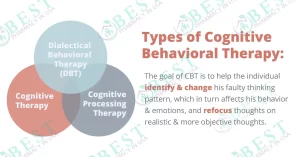What is Social Anxiety Disorder?
Social anxiety disorder makes you be afraid or worried in all or most social circumstances. Examples include going on a date, meeting new people, speaking, and performing in front of people. Social anxiety symptom is also called social phobia.
What causes Social Anxiety Disorder?
The following may raise your risk for a social anxiety disorder:
- The trouble with social skills
- Family or work stress
- A family history of an anxiety disorder
- Being bullied or teased as a child
What are the signs of Social Anxiety Disorder?
Social anxiety disorder can induce problems with work, school, or other everyday activities. You may have anxiety in any circumstances where you may have contact with people. It is difficult for you to control your stress and feel calm in these conditions.
The fear may be nowadays or weeks before the disease occurs. You may have the following before or through communication with other people:
- muscle tenseness, nausea, or a pounding heart
- blushing, sweating, shaking, or trembling
- worrying that you will be embarrassed or shamed
- fearing that others will reject you
- shaky voice or dry mouth
- worrying that you will offend others
- trouble making friends or keeping friends
- staying away from social situations
What do I require to inform my healthcare provider about my anxiety symptoms?
Please discuss with your healthcare provider when your signs began and what triggers them. Inform your health provider if anxiety impairs your daily activities.
Your healthcare provider will also inquire about your medical history and if you have family members with a similar situation. Inform your provider about your past and current alcohol, nicotine, or drug use.
What can I do to manage anxiety symptoms?

You may get drugs to help you feel calm and comfortable and to decrease your symptoms. Medications are usually given together with therapy or other treatment options. The following may help you to manage your anxiety: Talk to someone about your anxiety. Your doctor may suggest counseling. Cognitive-behavioral therapy can help you recognize and change how you react to events. It can also assist you in understanding what triggers your symptoms.
You might appear more comfortable speaking with a friend or family member about your anxiety. Taking someone you know will be supportive and encouraging. You can also seek a support group. A support group lets you communicate with others with a social anxiety disorder.
Find ways to stay calm.
Activities such as meditation, yoga, or listening to music can help you relax. It may support doing these actions before a social event or speech.
Practice deep breathing.
Deep breathing can benefit you relax when you feel anxious. Focus on deep breaths several times a day, taking slow, or before a social situation. Slowly breathe in through your nose.
Create a regular sleep routine.
Proper sleep can help you feel calmer throughout the day. Go to sleep and wake up at the same time daily. Do not use the television or use the computer right before going to bed. Your room should be dark, comfortable, and quiet.
Eat a variety of fresh foods.
Healthy foods include vegetables, fruits, low-fat dairy products, lean meats, fish, whole-grain pieces of bread, and cooked beans. Healthy nutrition can support you to feel less anxious and have more exceeding energy.
Exercise daily.
It can boost your energy level. Exercise may also elevate your mood and help you sleep adequately. Your healthcare provider can assist you in creating an exercise plan.
Do not smoke.
Nicotine and other substances in cigarettes and cigars can develop anxiety. Ask your healthcare provider to learn if you currently smoke and need help to quit. E-cigarettes or smokeless tobacco still hold nicotine. Discuss with your doctor before you use these products.
Do not have caffeine.
Caffeine can cause your symptoms to worsen. Do not take foods or drinks that increase your energy level.
Limit or do not drink alcohol.
Request your healthcare provider if alcohol is secure for you. Also, ask how much is reliable. You may not be capable of drinking alcohol if you take certain anxiety or depression medications.
Do not use drugs.
Drugs can cause your anxiety worse. It can also make stress hard to manage. Communicate to your healthcare provider if you take drugs and want help to quit.
When should I call my doctor?
You should call your doctor immediately if;
- Your symptoms get more severe or do not get better with treatment.
- You have had new signs since your last visit.
- You have inquiries or concerns about your disease or care.
Lifestyle and home remedies during your symptoms
Although social anxiety disorder usually requires help from a medical specialist or qualified psychotherapist, you can attempt some of these techniques to handle conditions that are likely to enhance your symptoms;
- Get physical exercise or be physically active regularly.
- Learn stress reduction skills.
- Get enough sleep.
- Eat a healthy, well-balanced diet.
- Limit or avoid caffeine.
- Avoid alcohol.
- Participate in social circumstances by moving out to people with whom you feel comfortable.